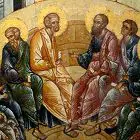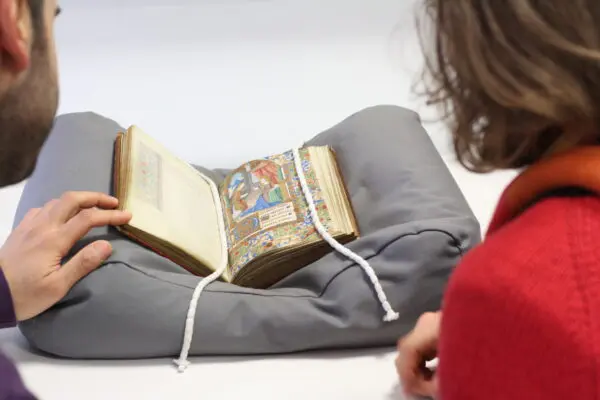
Utrecht, Netherlands
Old Catholic Theology: Faith, History and Praxis
When:
05 July - 10 July 2026
Credits:
2 EC
Read more
Religious Studies
When:
25 August - 30 August 2024
School:
UCSIA Summer School on Religion, Culture & Society
Institution:
University of Antwerp
City:
Country:
Language:
English
Credits:
0 EC

The UCSIA Summer School is a one-week mentoring programme that encourages doctoral and postdoctoral students to explore interdisciplinary ways of analysing the relationship between religion, culture and society. Key elements of the programme are expert lectures, paper presentations by the students and individual tutoring by the faculty. The UCSIA Summer School 2024, titled God on Our Side? Questioning Theological Narratives of Nationalism, Populism and Conservatism, marks the start of a three-year cycle of summer schools, focused on the entanglements of religion and politics, the communities in which they take shape and function, and the injustices they entail or critique.
In the 21st century, new forms of nationalism, populism and conservatism are emerging. They take shape at the intersection of historical, geopolitical, socio-economic as well as religious developments and discourses, with theological justifications of nationalist discourses playing an important role in the framing of national identities and the ‘Other’. An analysis of such ‘theological nationalism’ and religiously inspired politics is crucial to discerning the religious dimensions of contemporary politics and their global resonance.
Concepts of theological and political nature have always been reciprocally negotiated; their entangled histories have shaped and continue to shape communities and societies in practice, with diverging concrete effects. By bringing the different disciplines of the human sciences into dialogue with theology, this summer school will explore the dynamic exchange of concepts, ideas and assumptions between the theological and the political realm, that contribute to constructing a nationalist identity. Furthermore, attention will be paid to the racialization of religion, theological and religious nationalism, populism and conservatism and economic theologies. At the other end of the political spectrum, certain forms of socialism and solidarity are based on (secularized) religious or spiritual concepts such as ‘progress’, which – according to Karl Löwith – is the modern, secularized guise of the Christian theological concept of ‘hope’.
Doctoral and postdoctoral students with a research interest in religion are invited to apply to the summer school by submitting a research paper. Papers may address, but are not limited to the following questions:
What is theological or religious nationalism?
What accounts for its rise in different parts of the world? What issues does it respond to?
How do we understand theologically and socially scientifically the operation of theological ideas outside the realm of their institutions?
How is theological and religious nationalism intertwined with political trends of populism and conservatism?
How can we distinguish nationalist, populist or conservative theological-political discourses?
How do different scientific disciplines interpret public and political theology in these contexts?
Jayeel Cornelio, Professor of Development Studies, Ateneo de Manila University Jennifer Philippa Eggert, Senior Research Associate, JLI Vlad Naumescu, Associate Professor of Sociology and Social Anthropology, Central European University
PhD-students and postdoctoral students with a research interest in religion.
The UCSIA Summer School for PhD and postdoctoral students with a research interest in religion is designed to foster the dialogue between peers from different backgrounds and disciplines. By doing so, it seeks to critically analyze normative stances and contemporary academic tendencies that inform their research. In this spirit, the programme strives to encourage students to question the power dynamics and social entanglements that influence knowledge production.
When:
25 August - 30 August 2024
School:
UCSIA Summer School on Religion, Culture & Society
Institution:
University of Antwerp
Language:
English
Credits:
0 EC

Utrecht, Netherlands
When:
05 July - 10 July 2026
Credits:
2 EC
Read more

Utrecht, Netherlands
When:
05 July - 17 July 2026
Credits:
4 EC
Read more

Bristol, United Kingdom
When:
14 June - 04 July 2026
Credits:
5 EC
Read more